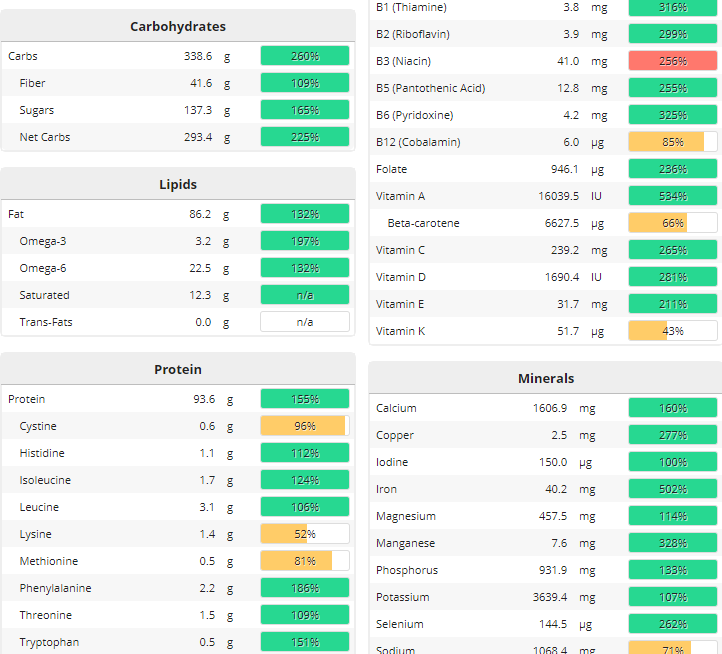Last year I stopped eating meat (for environmental reasons): went from meat every day to one meat meal every one or two weeks (basically only when going out). And since Coronavirus started, this has gone down to basically no meat at all. Now I'm mostly eating lunch made from noodles, rice or potatoes, with vegetables (carrots, zucchini, eggplant...). Also milk and oats for breakfast, and bread for dinner, and corn flakes etc. in the afternoon.
People have been saying now that I have become skinny and gaunt. I've never been overweight; but now my arms and legs are noticeably thinner than before.
Also, I've noticed that this year I'm not as fit as the years before: in particular after a 40-km bike ride I'm exhausted even on the next day, when before I could easily do a similar ride on the next day again.
Unfortunately I cannot easily quantify the changes. I don't have weight measurements from before or after the dietary change. I also stopped eating sugar or sugary stuff in November; so this might also have to do with the body changes.
I don't want to live unhealthy; and the reduced stamina is really annoying because I like cycling. Is my current diet unhealthy? I've thought about drinking protein shakes - is that a good idea? And how quickly should I expect to see any results?
Afterthought: is it possible and useful and realistic to get expert advice on my diet, eg. from a doctor? Does that make sense? I live in Germany, in case that matters.
